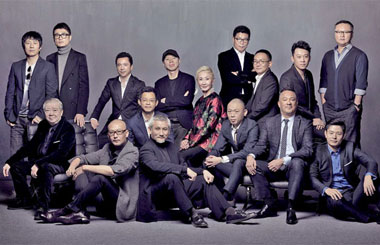American researcher, Chinese scientist work to cut smoking
Updated: 2016-04-19 09:08
By Linda Deng in Seattle(chinadaily.com.cn)
|
|||||||||
 |
|
The Public Health Sciences Division Building named Arnold of the Fred Hutchinson Cancer Research Center, a cancer research institute established in 1972 in Seattle, Washington. [Linda Deng/China Daily] |
In addition to noting thegood chemistry between them, Bricker said that Cheng has a passion and vision to reduce the smoking rate in China, and has demonstrated his commitment through quality research. "Plus, Cheng is a very good scientist who has quality mythological skills and a can-do attitude. It is not easy to find a right partner and I am very lucky." Bricker told China Daily.
Like the US app, the Chinese version will focus on Bricker's paradigm, called Acceptance and Commitment Therapy, or ACT, which uses an innovative method that provides tailored exercises and ongoing support messages to help people notice and accept smoking urges instead of trying to suppress them.
It could take five to six years to develop the SmartQuit China app, Cheng said.Bothare veryconfident that with enough funding their project will succeed.
Neither Cheng nor Bricker is paid extra for work on the project. "We want to make the investment because we really want to make impact on real people," Bricker said.
Smoking affects nearly 27.7 percent of China's adult population. According to the Chinese Center for Disease Control and Prevention (CDC), the number of Chinese smokers increased by 15 million in the past five years, making the total number of smokers 316 million by the end of 2015.
Peng spearheaded efforts that led to last year's law requiring all indoor public places in the capital city of Beijing to be smoke-free, a move that affects more than 20 million people.
"Efforts like this reduced the health risks of secondhand smoke. However, we need measures to help individual smokers." Cheng said.
Cheng led a research seminar for preparing the Smart Quit China research project with about 14 scientists from China leading institutes such as Tsinghua University and world organizations in January.
To build his research team, he invited Fu Xiaoxing, an anthropologist at Renmin University of China, and Su Chunyan from China Youth University of Political Studieswith expertise in medical anthropology, communication and media, qualitative social research.
"To understand the need of the app users in China through surveys anda pilot study is very important. However, two things create a good timing for this project. One is that China's new policy and laws to support the efforts. The other is the development of the mobile technology have fundamentally changed the education and promotion of public health program," Cheng said.
"The possibilities of using mobile technology for smoke cessation are huge. This is just beginning, the best yet to come," Bricker said.
Today's Top News
China says financial crisis caused weakening global steel demand
Embryos growing in space a 'giant leap'
Russia to defend regional security jointly with China
Passage to piraeus
In the hall of the great frescoes
World Bank joins AIIB on financing for joint projects
GM seeds to get oversight
Russia-China ties benefit both countries, peoples
Hot Topics
Lunar probe , China growth forecasts, Emission rules get tougher, China seen through 'colored lens', International board,
Editor's Picks

|

|

|

|

|

|







